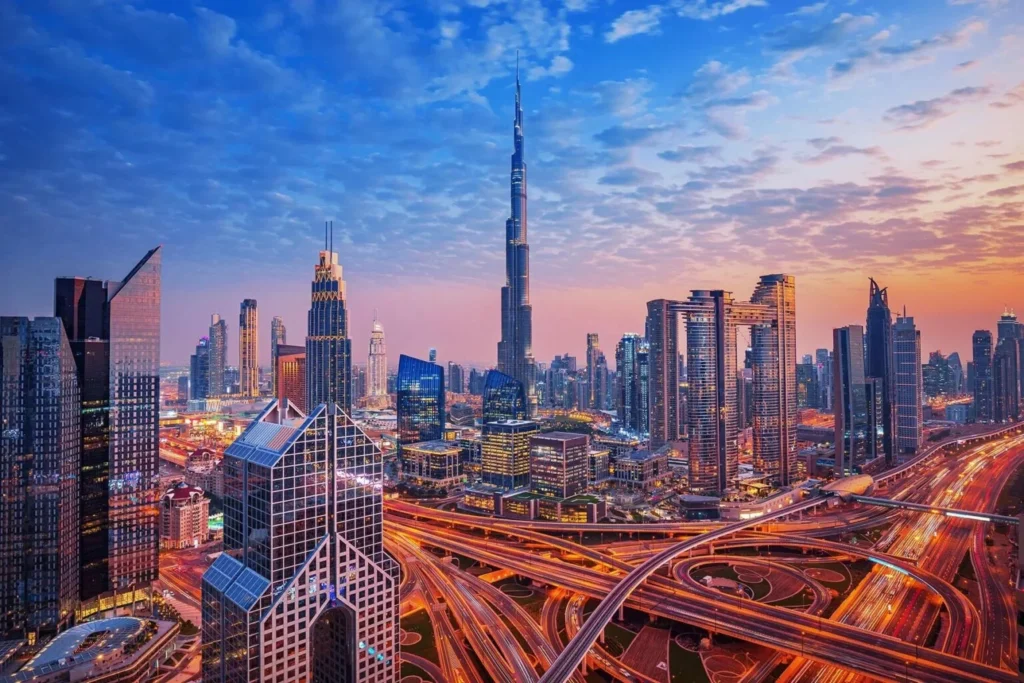Dubai Real Estate vs. Global Cities: Why Dubai is Leading the Property Investment Race in 2025
Dubai is no longer just an emerging player—it’s a serious contender in global real estate. As major cities like New York, London, and Singapore wrestle with inflation, regulation, and softening returns, Dubai continues to offer exceptional yield, streamlined ownership, and visionary infrastructure. In this in-depth breakdown, we reveal how Dubai is outperforming the world’s top cities—and why it’s becoming the go-to destination for sophisticated investors.
In 2024, Dubai’s property market recorded AED 761 billion in transactions—a 36% increase from the previous year. Off-plan sales accounted for 67% of total volume, driven by landmark projects such as Palm Jebel Ali and Dubai Creek Harbour. More than 110,000 new investors entered the market, including many high-net-worth buyers from Singapore, India, and China, acquiring properties valued at over $10 million. In contrast, New York recorded $28.3 billion in sales, London saw 2–3% annual price growth, and Manhattan properties remain nearly three times more expensive per square foot than comparable units in Downtown Dubai.
When it comes to rental yields, Dubai stands well ahead. Investors are seeing average gross returns of 6–10%, thanks to tax-free income, high rental demand, and the popularity of short-term rentals like Airbnb. New York trails with 3–5% returns, hindered by taxation and rental restrictions. London and Singapore offer 2–4% and 2.3–3% respectively, burdened by stamp duties, oversupply, and high taxation. Dubai maximizes net returns through both yield and tax efficiency.
Affordability is another differentiator. A $1 million property budget secures just 366 square feet in Manhattan, 528 in Central London, but 980 in Downtown Dubai. Average prices per square foot reinforce this advantage: Dubai at $566, compared to $1,668 in Manhattan, $1,892 in the City of London, and over $2,000 in Singapore and Hong Kong. Dubai offers more space, better lifestyle value, and investment flexibility.
Dubai’s legal and regulatory environment is equally attractive. There is no income tax, no capital gains tax, and no annual property tax. Investors gain full foreign ownership across key zones and become eligible for long-term Golden Visas with AED 2M+ property purchases. In contrast, cities like New York and London impose up to 28% capital gains tax and 20% in annual property taxes. Singapore levies a 32% stamp duty on foreign buyers, and Hong Kong applies strict ownership limitations and high holding costs. Dubai’s streamlined framework gives it a decisive edge.
Investors should still be mindful of potential short-term price moderation due to the expected delivery of over 42,000 new units in 2025. However, the market’s absorption rate and strong demand indicators suggest resilience. Other global cities face their own challenges, including unpredictable regulatory shifts, inflationary pressures, and economic uncertainty.
What truly sets Dubai apart is its commitment to infrastructure and future readiness. The city is actively expanding Al Maktoum Airport, developing smart city technologies, and rolling out blockchain-based land registration systems. Sustainable development is central, with LEED-certified communities and a goal of reaching 5.8 million residents by 2040. Cities like London and New York, by comparison, struggle with aging infrastructure and stagnation.
In summary, Dubai delivers what international investors seek: high yield, low friction, scalable value, and policy clarity. As global economic cycles shift, Dubai stands out as the best-positioned real estate destination for capital growth in 2025 and beyond.




Excellent items from you, man. I’ve understand your stuff prior to and you’re simply extremely great. I actually like what you’ve acquired right here, certainly like what you are stating and the best way in which you assert it. You make it enjoyable and you continue to take care of to keep it smart. I can’t wait to learn much more from you. That is really a great site.